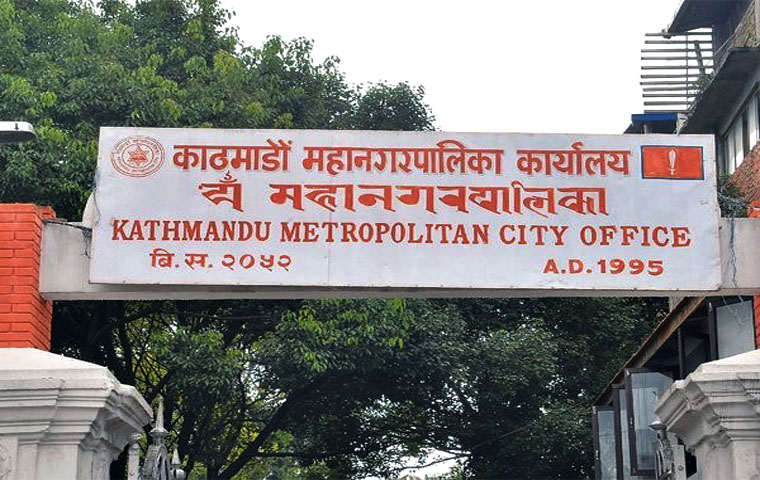
Kathmandu Metropolitan City Requests Hostels to Adhere to Cleanliness and Safety Standards
The Monitoring Committee of the Kathmandu Metropolitan City has urged hostel operators to maintain cleanliness, safety, and social decorum in their operations. During a meeting chaired by Deputy Mayor Sunita Dangol on Monday, the committee discussed concerns regarding undesirable activities within hostels and emphasized the importance of adhering to established standards.
Deputy Mayor Dangol remarked, "The management of hostels will begin with an organized system that includes the proper recording of information related to students and other residents."
Hostel Monitoring and Concerns
-
The meeting highlighted the need for regular monitoring, especially given that, according to the Hostel Association, approximately 40,000 students currently reside in hostels. The large number of residents necessitates strict supervision of living conditions and provided facilities.
-
An issue raised by Satish Tandukar, a member of Ward No. 10, pointed out that overcrowding is a significant problem, with some rooms designed for four people housing as many as 20 residents. The use of residential buildings for commercial purposes has created safety risks.
-
Anil Shrestha, a member of Ward No. 29, commented on the unethical practice of selling hostels at high prices after enrolling a large number of students for free. He described this trend as a growing problem.
Need for Supervision and Regulations
Education Officer Govinda Prasad Sharma stressed the importance of monitoring hostels to safeguard students' interests. Chief of the Revenue Department, Dhruva Kumar Kafle, shared concerns raised by representatives from the Nepal Hostel Association and Hostel Business Association of Nepal. They pointed out the financial pressures faced by hostel operators, such as paying rental taxes, maintaining buildings, and arranging water supplies independently, which have placed the hostel industry under significant strain.
Despite these challenges, there are hostels that fully comply with established standards. The representatives encouraged a focus on improving non-compliant hostels while supporting those that meet the required standards.
Hostel Operational Standards 2080 Issued by Kathmandu Metropolitan City
The Kathmandu Metropolitan City has released the "Hostel Operational Standards 2080" to ensure that hostels are organized, respectful, safe, and transparent. These standards aim to maximize the welfare of both students and hostel operators.
- The standards were issued under the authority granted by the Local Government Operations Act 2074, specifically Section 11(2)(j) and Section 102(2), and the Kathmandu Metropolitan City Administrative Procedures (Regulation) Act 2075.
Requirements for Hostel Operation
-
To operate a hostel within the metropolitan area, applicants must submit a detailed action plan, a commitment letter, a recommendation from the local ward, a building map and approval certificate, and a construction completion certificate. If the applicant owns the property, they must submit land ownership documents, and if renting, a copy of the rental agreement must be provided.
-
After a site inspection and assessment of the actual conditions, the Education Department of the Kathmandu Metropolitan City will issue an operational permit.
Minimum Infrastructure Requirements
-
Hostels must provide essential facilities such as toilets, kitchens, water supply, electricity, beds, cupboards, tables, waste management systems, and proper sanitation.
-
Rooms must be spacious, well-ventilated, and have adequate lighting. Additionally, there must be provisions for fire safety, such as fire extinguishers and first-aid kits, and CCTV cameras should be installed in common areas (excluding rooms and toilets) for monitoring purposes.
-
Hostels should not be located in areas prone to disturbances or pollution. Hostels for male and female students should not be in close proximity, with a minimum distance of 200 meters between them. If a single operator runs both hostels, they must manage them from separate buildings.
Operational Guidelines
-
Hostel operators are expected to establish internal rules regarding services, responsibilities, discipline, confidentiality, and conduct codes, which must be submitted to the Metropolitan City for approval.
-
Clearly visible identification boards must be placed at hostels as specified by the Metropolitan City. Operators are also required to keep up-to-date photos and identification documents of all residents. Unauthorized individuals should not be allowed inside, and a conducive educational environment must be maintained.
-
The possession, sale, or use of alcohol, drugs, or tobacco products within hostel premises is strictly prohibited. Hostel operators, who are expected to act in a parental role, must be at least 30 years old.
Duties, Rights, and Penalties
- The standards outline the roles, duties, and rights of individuals associated with hostels, including wardens and students. Monitoring procedures, fees, penalties, and dispute resolution mechanisms are detailed in five separate chapters. Additionally, templates for hostel proposals and commitment letters are provided in the schedule.





